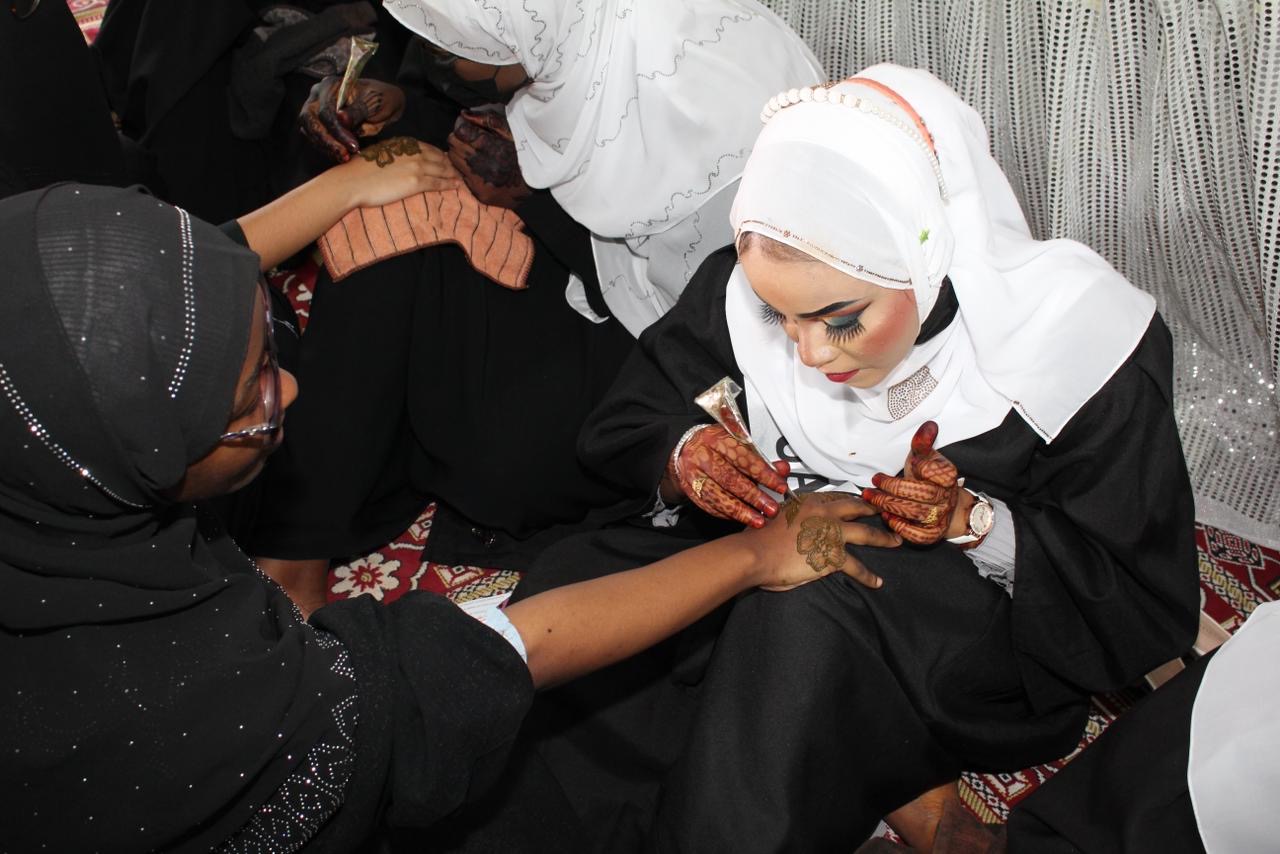Henna art turns struggle into triumph for Mombasa’s young entrepreneur

What began as a necessity to support herself has blossomed into a thriving business and a platform for community engagement.
When the dream of attending university slipped away due to a lack of fees, 23-year-old Shariffa Abdulkadir from Mombasa saw an opportunity in her passion for henna art.
Henna art, also known as mehndi, is a form of body decoration that involves applying a paste made from the powdered leaves of the henna plant to the skin. The paste is typically applied in intricate designs on the hands, feet, and other parts of the body. Once the paste dries and is removed, it leaves a temporary stain that can last from one to three weeks.
More To Read
- Ultimate guide to selecting the perfect scented candle for your home
- SMEs warn soaring prices of raw materials, costly licences threaten survival
- Boom for Mombasa beauty artists as they blend tradition and modern style
- Feel Great Boutique opens at Business Bay Square Mall, bringing health products to Kenya
- Opinion: Beauty of embracing our natural skin colour
- Eastleigh’s henna artists blending traditional and modern fashion
Henna art is often used for special occasions such as weddings, festivals, and celebrations, and is valued for its beauty and cultural significance.
What began as a necessity to support herself has blossomed into a thriving business and a platform for community engagement.
Shariffa, a Form Four leaver from Al-Farsy Secondary School, faced several setbacks on her journey.
As a young girl, she would wake up early every day to cross the Likoni Ferry to reach school on time. Her education was further disrupted in 2019 when her father fell critically ill with cardiac disease, diabetes, and high blood pressure.
The family had to move from Likoni to Mombasa town in search of better healthcare, forcing Shariffa to balance her studies with caring for her ailing father.
During school holidays, she would draw henna for clients to earn money for revision books and school expenses.
However, her hands often bore henna stains, leading to suspensions from school. “I wished I could tell the principal that those stains helped me buy the revision books,” Shariffa reflects.
After completing her studies, Shariffa aspired to study Pharmacy but lacked the funds. Instead of giving up, she decided to enhance her henna art skills. "In December 2019, I officially started my journey in henna art. I approached people who knew the craft, but they rejected me, thinking I would steal their customers," she says.
 Shariffa Abdulkadir when she won the Pwani Women Awards under the Women in Arts and Culture category. (Photo: Farhiya Hussein)
Shariffa Abdulkadir when she won the Pwani Women Awards under the Women in Arts and Culture category. (Photo: Farhiya Hussein)
Undeterred, Shariffa taught herself using online images.
Breakthrough
Her first major opportunity came during Eid when she announced her services to the community. With no proper workspace, she laid out a mat outside her home and painted henna on clients by the roadside. “The first Eid, I earned Sh5,000. It made me so happy and gave me confidence,” she recalls.
Three years into her journey, in 2021, Shariffa decided to open Henna College in her mother's living room, despite initial challenges. “For a whole year, no one joined. Then one day, a student enrolled and paid for a full course,” she says.
Other Topics To Read
She charged Sh 2,000 per month and began reaching out to those interested in learning henna art but lacking financial stability.
“I used to charge from Sh500 for a henna art when I started working. Now I charge Sh1,500. For the student fee I started with Sh2,000 per month now they pay Sh5,000 per month for a full course for 5 months.”
By 2022, Henna College had its first intake of five students, and word began to spread. Shariffa’s perseverance paid off in 2023 when she was nominated for the Best Henna Artist competition in Mombasa.
Though she was intimidated by her competitors with over ten years of experience, she emerged as the winner with a large number of votes. Later that year, she won another award for Best Woman in Art and Culture.
The recognition gave her the courage to continue promoting her college, leading to its first graduation ceremony in November 2023, with 13 students proudly completing their courses.
 Students from Sherry Heena College during their graduation ceremony in November 2023. (Photo: Farhiya Hussein)
Students from Sherry Heena College during their graduation ceremony in November 2023. (Photo: Farhiya Hussein)
Today, she continues to teach from her home, dreaming of establishing her own college and workspace.
The Students at Henna College speak highly of their experiences. “I came to this college after seeing her work on social media, which drew me in. It motivated me a lot as I wanted to learn handcrafts as a Form Four leaver. When I joined the college, I was impressed by how my tutor gives 100 per cent attention to her students and ensures that all of us are attentive in class,” Fatma Salim said.
Another student, Rahma Suleiman, describes how she found Henna College after a disappointing experience elsewhere. “My mom was the one who saw the work of Madam Sherry and loved what she was doing as I had joined somewhere else to learn henna but it was so disappointing,” she said.
Asha Ali, who joined Henna College as a hobby, adds, “Madam Sherry makes us feel at home. She is kind, sweet, and always focused on her students.”
They describe Shariffa’s journey from a young girl with a dream to the founder of Henna College as an inspiring testament to resilience, passion, and community spirit.
Top Stories Today
















































